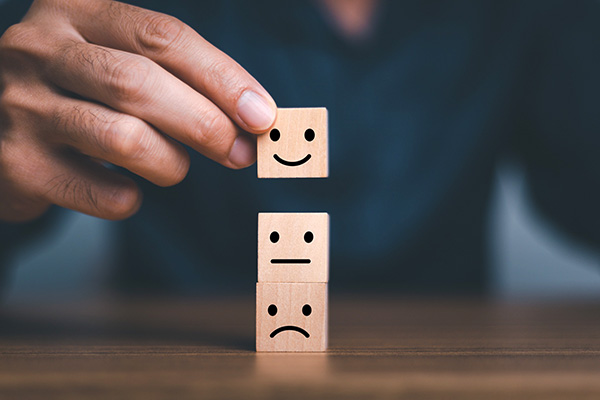toxic feelings
Forgiveness Is Choosing To Take Back Your Power
 Ah, forgiveness! Such a misunderstood concept. For many people, forgiveness, as noble as it may sound, is very difficult, even impossible.
Ah, forgiveness! Such a misunderstood concept. For many people, forgiveness, as noble as it may sound, is very difficult, even impossible.
Sometimes certain wrongs are so grave to us that the offender doesn’t deserve forgiveness in our eyes. There is also a misconception that forgiving someone is tantamount to excusing or justifying their terrible actions. But forgiveness is not about absolving someone of responsibility. Instead, it is a powerful, personal act of release and healing.
When we forgive someone, whether they’ve hurt us emotionally, betrayed our trust, or even caused us physical harm, we’re not letting them off the hook.
We are not condoning their actions or giving them permission to repeat those offenses. Rather, we are choosing to free ourselves from the weight of resentment, pain, and bitterness that binds us to them and their past actions.
Forgiveness is a gift we give ourselves. It allows us to move forward without the burden of past grievances and with an open heart, free of resentment.
By forgiving, we determine for ourselves that the transgressor’s actions and the memory of their misdeeds will no longer hold us hostage or march with us into the future.
While we may not be responsible for what happened to us in the past, we are responsible for how we choose to carry the memory of it into the future. This is the power of forgiveness: it gives us the strength to embrace our present reality with clarity, compassion, and freedom. It also transforms our future, for it is ultimately a karmic choice that will shape our destiny in ways we will only understand much later in this life and beyond.
Is Your Texting Pushing Him Away?
 A new client recently contacted me about a promising romantic relationship. The first thing that became clear as I began to read for her was that she had a long history of dating men who seemed like potential long-term partners, but then suddenly disappeared or broke up with her after only a few months.
A new client recently contacted me about a promising romantic relationship. The first thing that became clear as I began to read for her was that she had a long history of dating men who seemed like potential long-term partners, but then suddenly disappeared or broke up with her after only a few months.
It quickly also became clear to me that texting was a significant factor in her dating problems. Misunderstandings due to texting have damaged the romantic, family, and friendship relationships of many people I have worked with as a psychic professional. This client was no exception.
As I read the energy around her situation, I sensed that she had a tendency to push men away by unnecessarily panicking when she did not feel completely in control. Guys can sense panic and controlling tendencies and for most men this is usually a big turnoff.
This kind of negative energy is also stressful and doesn’t improve the outcome of an uncertain situation. Excessive obsession, panic, and worry will not bring someone closer to you; in fact, it can push a potential long-term relationship away forever.
I then had to tell her that while I did see the potential for a long-term relationship in their connection, I didn’t currently see a long-term future for them if she continued with all the texting she was doing. I told her to take a step back, breathe, stop worrying so much, and definitely not try to resolve things through texting any more.
Working Your Way Up The Emotional Scale
 Is it not amazing how many different emotions we can experience? No one even knows for sure how many different human emotions there are!
Is it not amazing how many different emotions we can experience? No one even knows for sure how many different human emotions there are!
Over the years, psychologists and neuroscientists have proposed various models for categorizing and understanding human emotions. The highest total number of distinct emotions identified by a single model is found in the research of Alan S. Cowen and Dacher Keltner, who identified 27 distinct emotions. Their model is one of the most comprehensive in terms of categorizing a wide range of human emotional experiences.
A concept closely related to the wide range of emotions we can experience is that of an emotional scale, also known as an emotional spectrum or hierarchy. This idea involves categorizing and ranking emotions based on various criteria such as their intensity, positivity or negativity, and how they relate to each other.
There are several emotional scales that are used to help us better understand and navigate our emotions. There is Plutchik’s Wheel of Emotions, Russell’s Circumplex Model of Affect, David Hawkins’ Map of Consciousness and Abraham-Hicks’ Emotional Guidance Scale.
Emotional scales and models serve a variety of purposes, including therapeutic contexts, self-help, academic research, emotional intelligence training, spiritual growth and guidance, manifestation practices, and other esoteric and practical applications. They help people identify, categorize, and work with their emotions for improved emotional well-being and self-awareness.
Spiritual Practices To Improve Your Mental Health
 Mental health has become a critical focus for many in recent years. While traditional methods such as counseling, therapy, and medication are essential in addressing mental health issues, the mental health benefits of spirituality are often overlooked.
Mental health has become a critical focus for many in recent years. While traditional methods such as counseling, therapy, and medication are essential in addressing mental health issues, the mental health benefits of spirituality are often overlooked.
Everyone’s mental well-being is affected at some point by the challenges of modern life. It is common to feel out of balance when our world seems to be spinning out of control, or when it seems that we are not getting the things we most want in our lives.
Most people don’t realize that spiritual connection is essential to our mental health and facilitates well-being on all levels. Because mental health issues have such a low and heavy vibration, they make it difficult and sometimes impossible to feel the presence of God, Source, Spirit, the Divine in our lives.
But by working daily to establish a strong connection with your spirit guides and higher source, you are taking a powerful step toward freeing yourself from the grip of these inner demons and dark energies.
Spirituality in its various forms is a powerful way to connect with yourself and the world, fostering a deeper sense of inner peace and purpose for a more balanced and fulfilling life. Research clearly shows that various spiritual practices can significantly improve mental health. These practices offer complementary benefits to traditional mental health treatments, promoting emotional resilience, stress reduction, and overall psychological well-being.
Personally, I have found that spiritual practices such as prayer, meditation, and journaling give me greater access to guidance and support from the spirit realm and my guides. Our guides are a wonderful source of healing, guidance, and direction. Getting in touch with our guides can actually help us get out of a funk because they have the ability to set us free and empower us on every level.
Always Feel Free To Own Your True Feelings
 Has anyone ever told you that you are too happy? Or has anyone ever told you that you smile too much? My guess is probably never.
Has anyone ever told you that you are too happy? Or has anyone ever told you that you smile too much? My guess is probably never.
So, why is it that whenever we experience negative emotions, be it grief, despair, or depression, we are often told that there is a time limit to such feelings and that we need to get over it. In today’s society, it is essentially also taboo to express feelings of loneliness, sadness, fear, or simply being unhappy.
My brother died at the tender age of 12 and left such a void in our lives that my entire family grieved his loss for decades. Fortunately, we were raised to accept this as a perfectly normal and natural process for us. We all understood that we would work through our feelings of grief and loss in our own way and at our own pace. We did not grieve according to a schedule or set of societal rules.
I find that a useful way to think about feelings and how to process them is to think of our emotions as being processed by our heart and mind like food is processed by our body. Just like food, we need to break down, digest, and assimilate the lessons and insights in our emotions to serve as growth “nutrients” for the soul.
Anger Awareness For The Empowered Empath
 Of all the emotional energies that empaths have to deal with, anger is one of the most powerful and potentially destructive, because empaths feel and react first, and think later.
Of all the emotional energies that empaths have to deal with, anger is one of the most powerful and potentially destructive, because empaths feel and react first, and think later.
An empath’s initial reaction to someone else’s angry feelings is usually some form of intense “fight or flight” response.
The more extroverted empath will often respond to the anger with equal force, usually involving a very intense and potentially catastrophic emotional outburst. The introverted empath will usually “flee” the scene or do everything possible to avoid the person who is emitting the anger.
After the initial reaction, the empath’s emotional state will often then shift to sadness, anxiety, or feeling drained and depressed at seemingly inappropriate times and for no apparent reason.
Because it is very common for empaths to be intensely aware of the feelings, moods, and motives of others, sometimes even before others are aware of their own feelings, a strong emotion like anger deeply affects us. And if the other person is a spouse or partner in a romantic relationship, anger can become a proverbial land mine. Ditto if it is a co-worker or employer.
The Spiritual Importance Of Releasing Resentments
 I went out for lunch today and had a bad service experience with the waitress. It was as if she didn’t care much to listen to what I wanted. She seemed distracted and careless.
I went out for lunch today and had a bad service experience with the waitress. It was as if she didn’t care much to listen to what I wanted. She seemed distracted and careless.
Two and a half months ago, I had a similar experience at another restaurant when the server packed the wrong items for me to take home. I felt ignored, even disrespected. Today’s experience brought back the same feelings and memories.
I was so upset that I decided I was not going to leave her a tip. But then, in the middle of my meal, while feeling angry and somewhat sorry for myself, I overheard a nearby customer calling her friend by the same name as my late mother.
This caused me to pause and reflect on my toxic thoughts about the careless waitress. You see, my mother was also a waitress many years ago. It was how she put food on the table and put us through school.
Perhaps today’s events were meant to remind me during the holiday season how many of us go through life with unhealed “mother wounds.”
Spirit now had my attention and proceeded to make me aware that my waitress had her own issues with her mother growing up, and that she is now a single mother herself, barely making ends meet. This realization instantly changed my perspective and my petulant attitude.